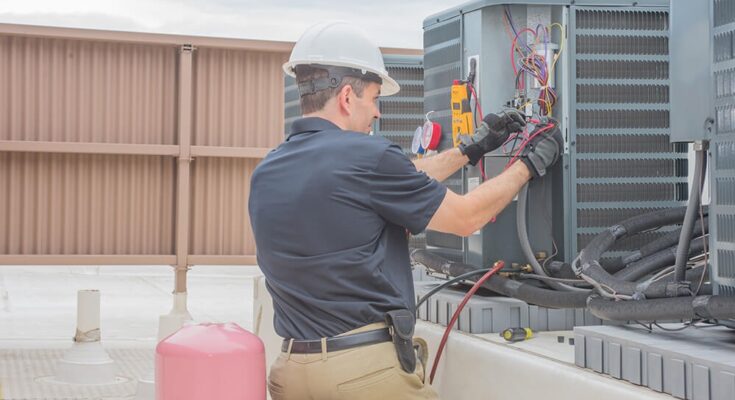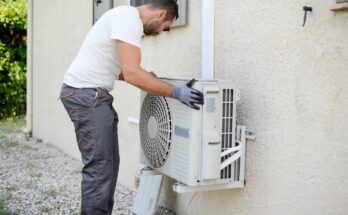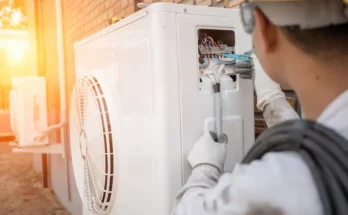Living in Peoria, AZ, means experiencing a variety of temperatures, from scorching summer heat to cooler winter nights. For homeowners, ensuring that their air conditioning (AC) and heating systems are in top-notch condition is essential for comfort and efficiency. Whether you’re in need of repair, replacement, or just regular maintenance, knowing when to call in the experts can help you avoid costly breakdowns and enhance the lifespan of your HVAC system. In this guide, we’ll cover everything you need to know about AC and heating repair and replacement in Peoria, AZ.
Why is Regular AC and Heating Repair and Maintenance Essential?
When your HVAC system is running smoothly, you may forget about it until something goes wrong. However, keeping your AC and heating system in good condition is critical not just for comfort, but also for maintaining the efficiency of your home.
Here are the main reasons why repair and maintenance are essential:
- Energy Efficiency: A malfunctioning or neglected HVAC system has to work harder, leading to higher energy bills. Regular maintenance and timely repairs ensure your system operates at peak efficiency, saving you money on energy costs.
- Longer Lifespan: Regular servicing helps detect and fix minor issues before they become major problems, extending the lifespan of your HVAC system.
- Improved Comfort: Whether it’s keeping your home cool during hot summer days or warm in winter, a properly functioning HVAC system ensures consistent and optimal indoor temperatures.
- Better Air Quality: Over time, dust, debris, and mold can accumulate in the system. Regular servicing cleans filters and vents, ensuring the air in your home is fresh and free from contaminants.
- Fewer Emergency Breakdowns: The last thing you want is your HVAC system to fail during extreme temperatures. Timely repairs and maintenance help prevent emergency breakdowns, keeping you and your family comfortable all year.
Common AC and Heating Issues in Peoria, AZ
Peoria residents deal with extreme temperature shifts, which can put extra stress on your HVAC system. Some of the most common AC and heating problems homeowners encounter include:
1. Refrigerant Leaks in AC Units
If your air conditioner isn’t cooling your home properly, it may have a refrigerant leak. Refrigerant is a crucial component that helps your system cool the air. A refrigerant leak can cause the system to malfunction, leading to warm air and increased energy use. If you suspect a refrigerant leak, it’s best to contact a licensed technician to inspect and repair your unit.
2. Frozen Coils
Frozen coils can prevent your air conditioner from cooling your home effectively. Ice build-up can occur due to a dirty filter, low refrigerant levels, or poor airflow. This issue requires prompt attention to prevent further damage to your system.
3. Faulty Thermostat
If your HVAC system isn’t responding to temperature changes, the issue might lie with the thermostat. Sometimes, the thermostat may need reconciliation, or it could be a sign of a deeper electrical issue. A professional can troubleshoot and ensure your system runs correctly.
4. Dirty or Clogged Air Filters
Air filters trap dust and debris, preventing them from entering the system. Over time, these filters become clogged and can reduce airflow, forcing your system to work harder. Regularly replacing or cleaning your air filters will keep your system running smoothly.
5. Pilot Light or Ignition Problems (Heating Issues)
In colder months, heating issues can arise from problems with the furnace’s pilot light or ignition system. If your furnace is no longer producing heat, the pilot light may have gone out or there may be an issue with the ignition system. A trained professional can inspect and address these problems.
6. Broken Duct work
Leaky or broken duct work can significantly affect the efficiency of your HVAC system. Leaks cause cool or warm air to escape before it reaches your living spaces. Sealing ducts can improve air distribution, reduce energy costs, and prevent system stress.
7. System Short Cycling
Short cycling is when the HVAC system turns on and off too frequently. This can be caused by several issues, including overheating, a clogged filter, or a malfunctioning thermostat. Short cycling reduces energy efficiency and could lead to the premature failure of your system.
When to Repair vs. Replace Your HVAC System
Many homeowners are faced with the decision to either repair or replace their HVAC system. This decision can depend on several factors, such as the age of the system, repair costs, and energy efficiency.
Here are some factors to consider when deciding whether to repair or replace your system:
Age of the System
- Repairs: If your HVAC system is under 10 years old and only requires minor repairs, it’s often worth fixing.
- Replacement: If your system is older than 10-15 years, replacement may be more cost-effective. Older systems tend to break down more frequently, and new systems are often more energy-efficient.
Repair Costs
- Repairs: If the cost of repairs is relatively low (less than 50% of the cost of a new unit), repairing the system is often the best option.
- Replacement: If repair costs are high or you’ve already spent significant money on repairs, it may be time for a replacement.
Energy Efficiency
- Repairs: If your system is still fairly efficient but needs a minor repair, fixing it can extend its lifespan without compromising energy savings.
- Replacement: Newer HVAC systems have better energy ratings and can save you money on your energy bills over time. If your system is outdated and inefficient, replacing it can be a wise investment.
Frequent Breakdowns
- Repairs: If the system is experiencing only one-off issues, repairs may be the way to go.
- Replacement: If your system constantly breaks down or requires frequent repairs, replacement is often the more cost-effective option in the long term.
Benefits of Upgrading Your HVAC System
When it’s time to replace your old HVAC system, upgrading to a newer, more efficient model comes with several advantages:
1. Energy Savings
Modern HVAC systems are designed to be far more energy-efficient than older models. With SEER (Seasonal Energy Efficiency Ratio) ratings improving year after year, upgrading to a newer unit can lead to significant savings on your utility bills.
2. Improved Comfort
New systems provide better temperature control, airflow, and overall comfort. With advancements in HVAC technology, features like variable-speed motors and zoning systems allow for customized comfort throughout the home.
3. Environmental Impact
Many modern HVAC systems use eco-friendly refrigerants, reducing your home’s carbon footprint. Replacing an outdated system with a more efficient model helps contribute to environmental sustainability.
4. Advanced Features
Newer HVAC units come equipped with smart technologies, such as Wi-Fi-enabled thermostats, allowing you to control your system remotely. These features make it easier to optimize energy use and comfort.
5. Fewer Repairs
A new HVAC system is less likely to experience breakdowns, saving you from costly repairs. Additionally, many new systems come with extended warranties for peace of mind.
Choosing the Right HVAC Company in Peoria, AZ
Selecting the right Ac and heating repair and replacement in Peoria company is crucial to ensuring quality repair or replacement services. Here’s what you should look for when choosing an HVAC contractor in Peoria:
- Experience and Certification: Choose a company with certified technicians who have experience working with both AC and heating systems.
- Reputation: Check online reviews, ask for referrals, and look at customer feedback to find a reliable and trustworthy contractor.
- Transparency: Look for companies that offer free, no-obligation estimates and upfront pricing. Transparency prevents hidden fees and ensures you know exactly what you’re paying for.
- 24/7 Emergency Service: HVAC systems often break down at inconvenient times. A company offering emergency services ensures that your system will be up and running when you need it most.
- Warranty and Maintenance Plans: Many HVAC companies offer warranties on parts and labor, as well as maintenance plans that can help keep your system in top condition year-round.
FAQs About AC and Heating Repair and Replacement in Peoria, AZ
Q1: How often should I have my HVAC system serviced?
A1: It’s recommended to service your HVAC system at least twice a year—once in the spring for your AC and once in the fall for your heating system. Regular maintenance prevents breakdowns and improves efficiency.
Q2: What are the signs that I need to replace my HVAC system?
A2: Common signs that it’s time to replace your HVAC system include frequent breakdowns, rising energy bills, inconsistent temperatures, and the system being over 15 years old.
Q3: How can I reduce my energy bills with my HVAC system?
A3: To reduce energy bills, ensure regular maintenance, replace filters often, seal duct leaks, and invest in a smart thermostat. Upgrading to a more energy-efficient system can also make a significant difference.
Q4: Can I finance my HVAC replacement?
A4: Many HVAC contractors offer financing options to help homeowners spread out the cost of a new system. Be sure to ask about available payment plans and financing before committing.
Q5: Should I repair or replace my furnace?
A5: If your furnace is older than 15 years or if the repair costs are more than



